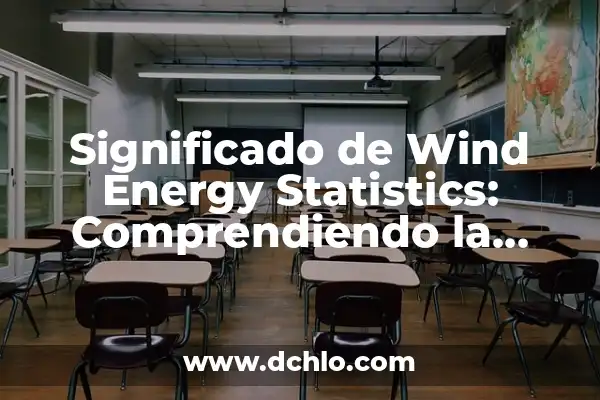Biomass energy is a vital component of renewable energy sources, derived from organic matter. This energy form is crucial as it offers a sustainable alternative to fossil fuels, helping mitigate climate change by reducing greenhouse gas emissions.
What Is Biomass Energy?
Biomass energy is generated from organic materials such as plants, wood, and waste. It is produced through processes like combustion, anaerobic digestion, and gasification. Historically, biomass was a primary energy source, with evidence of its use dating back to ancient times when humans first harnessed fire for cooking and warmth.
The Role of Organic Matter in Sustainable Energy
Organic matter plays a pivotal role in sustainable energy by converting biological resources into usable energy. This method reduces reliance on fossil fuels, promoting a cleaner and more sustainable energy mix. The conversion processes include thermal, chemical, and biochemical methods, each offering distinct advantages.
Examples of Biomass Energy Sources
Common sources include:
También te puede interesar

Understanding the Ending of Monster: A Deep Dive
The conclusion of the anime and manga series *Monster* is a subject of profound discussion among enthusiasts. This exploration delves into the intricate layers of the final scenes, offering insights into themes and character development without repeatedly using the term...

Como hacer a Kratos en Monster Hunter World
Antes de empezar a crear a Kratos en Monster Hunter World, es importante que tengas ciertos conocimientos básicos sobre el juego y sus mecánicas. Asegúrate de haber alcanzado un nivel decente de experiencia en el juego y de tener una...

El Significado de Monster Energy: Todo Sobre la Marca y su Impacto
Monster Energy, una de las bebidas energéticas más populares a nivel mundial, ha dejado una huella imborrable en la cultura moderna. Este artículo explora su significado, origen y el impacto cultural que ha tenido desde su creación.

Significado de Wind Energy Statistics: Comprendiendo la Energía Eólica
En un mundo cada vez más consciente de la importancia de las energías renovables, el término significado de wind energy statistics se refiere al estudio y análisis de datos relacionados con la energía eólica. Este artículo explora las estadísticas que...

El Simbolismo del Logo de Fila
En el mundo del diseño gráfico y la identidad de marca, los logotipos son más que simples imágenes; son portadores de significados profundos que reflejan los valores y la esencia de una marca. Uno de los logos más icónicos en...

El Simbolismo del Logo de Monster Energy
El logo de Monster Energy es más que un simple diseño; es un símbolo cargado de significado que refleja la esencia de la marca. Este artículo explora detalladamente el simbolismo detrás de este emblemático logo, destacando su diseño, historia y...
– Agricultural residues: Crop waste like corn stalks and sugarcane bagasse.
– Algae: Fast-growing and rich in oil, ideal for biofuels.
– Municipal waste: Organic waste from households converted into energy through landfills or digestion.
Renewable Resources and Their Significance
Biomass is a renewable resource as it is replenished naturally, unlike finite fossil fuels. Its use supports energy security and reduces carbon emissions, making it a cornerstone of sustainable energy strategies.
Why Biomass Energy is Important
Key reasons include:
– Sustainability: Continuous supply from organic matter.
– Greenhouse Gas Reduction: Lowers carbon emissions compared to traditional fuels.
[relevanssi_related_posts]– Energy Security: Diversifies energy sources, enhancing reliability.
Environmental Impact of Biomass Energy
While biomass offers environmental benefits, it can have drawbacks like land use changes and emissions during combustion. Balancing these aspects is crucial for sustainable use.
Uses of Biomass Energy
Biomass is versatile, used for:
– Electricity: Through combustion in power plants.
– Heat: In industries and homes via boilers.
– Biofuels: Fuels like ethanol and biodiesel for transport.
Bioenergy and Its Benefits
Bioenergy from biomass reduces carbon dependence and fosters rural economies through crop cultivation for energy. Technological advancements enhance efficiency and reduce costs.
Renewable Energy Sources
Biomass is a key renewable energy source, offering a reliable and constant energy supply, complementing intermittent sources like solar and wind.
Understanding Biomass Energy
Biomass energy harnesses energy from organic matter through conversion processes, providing a sustainable and eco-friendly alternative to traditional fuels.
Origin of the Term Biomass Energy
The term emerged in the 20th century as focus shifted to renewable energy. It reflects the use of biological material for energy production, rooted in early human use of fire.
The Future of Organic Energy
Organic energy, or bioenergy, is expected to grow with technological innovations, potentially meeting a significant portion of global energy demands sustainably.
Advantages and Disadvantages
Biomass offers benefits like renewability and carbon neutrality but also has challenges, including land use competition and production costs.
Utilizing Biomass Energy
Implementation examples include:
– Agriculture: Using crop residues for electricity.
– Industry: Heat production from waste biomass.
– Transport: Biofuels reducing carbon emissions.
INDICE

